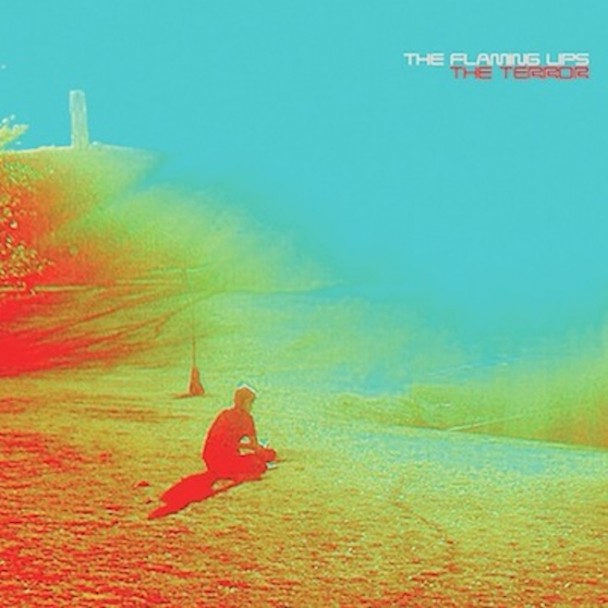You could make a convincing argument that The Flaming Lips are becoming more difficult to listen to as time goes on and their discography grows. 2009’s double album Embryonic was one of their most complicated releases, heavy in sound, excessive in length, and a big departure from comparatively ‘easier’ listening experiences such as The Soft Bulletin or Yoshimi Battles the Pink Robots. However, a challenging album can be just as rewarding as one that is universally accessible, and, in the case of The Flaming Lips, being experimental and surprising has become part of what people have come to expect from Wayne Coyne and the band. In the case of their new release, The Terror, being a difficult listen thankfully plays in the album’s favour, and despite adopting a new sound it remains quintessentially a Flaming Lips record.
The same kind of disparate, jarring sounds heard during parts of Embryonic still occasionally enter the mix, such as the distorted electronic parts of “Look…The Sun Is Rising,” but the shorter run-time, the addictive melodies, and the pleasant vocals carrying these tracks prevent these more divisive sounds from becoming a nuisance. Coyne has never had the strongest voice in music, but we’ve rarely heard him singing as he does frequently on The Terror. In “Be Free, A Way” he adopts a chanting, gentle tone which resonates throughout the record. He plays around with Beach Boys-esque harmonies in “Try To Explain,” an optimistic, celebratory track that really benefits from Coyne’s vocal style. To call The Terror one of Coyne’s best vocal records might be an overstatement, but what is here is pleasant and seems to suit the music well.
By this stage, attempting to box The Flaming Lips in a musical genre is a fruitless affair rife with complications. The synthesisers on “You Lust,” which features indie pop duo Phantogram, are ripped straight from the 80s, with the track eventually mutating into an experimental noise rock tour de force palpably dripping with menace, only to fade out into a pretty little ambient instrumental. With such a diverse array of sounds on display, The Terror is very much unpredictable, with song structures constantly changing, invoked moods endlessly fluctuating, and tracks consistently vying for the listener’s attention. In some instances this unpredictability works particularly well, such as in the album closer “Always There, In Our Hearts,” where propulsive drums and heavy guitar make it sound like a lost track from the Embryonic sessions.
In most cases, these tracks require a few listens to really sink in. The aptly named “Turning Violent” and “You Are Alone” occupy minimal, dark ambient space that could drift by without much thought, crumbling beneath the weight of more engaging tracks. In other examples, such as two-thirds of the way into “Butterfly, How Long It Takes To Die,” the lines between music and oppressive noise are almost blurred. Thankfully, even during their most flamboyantly experimental moods The Flaming Lips keep things grounded enough to suggest that they always have a conscious direction ahead of them, even when it occasionally sounds as if Coyne has accidentally stumbled into a synthesiser and recorded the outcome.
The Terror is an important release for The Flaming Lips, because it suggests that despite the band approaching three decades of music-making, they are still full of creativity. There aren’t many other albums that sound like The Terror, and while clearly a work of The Flaming Lips there is enough that is new here for old and new fans alike to engage with it. That the band can toy with established notions of what is expected of them is a credit to their seemingly endless supply of ideas. While The Terror is a brooding and menacing album that makes no effort to be inviting to listeners, it is also a testament to the lack of need for The Flaming Lips to accommodate people looking for an easy listening experience. As one of the most polarizing records in their extensive discography, this release is sure to divide certain fans, especially those who were disillusioned by the relative inaccessibility of Embryonic. For listeners looking for a noisy and thoroughly experimental album, though, The Terror is just what the doctor ordered.

